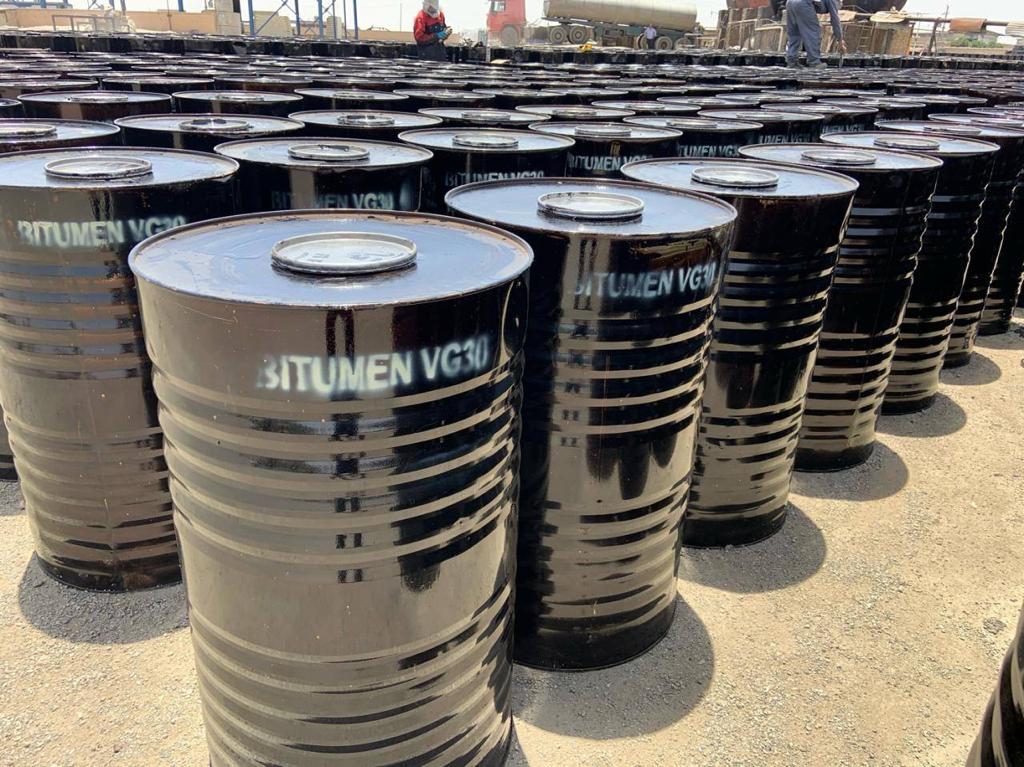
Overview
VG Bitumen 30, or Viscosity Grade 30 Bitumen, is high-quality bitumen for applications in road construction, hot mix asphalt, and industries. It is highly viscous with high adhesion capacity. VG 30 is best suited for areas that have high traffic flow and huge variations in temperatures. VG 30 provides the maximum resistance against deformation and cracking, giving long-lasting and tough asphalt surfaces.
What is VG Bitumen 30?
VG 30 is one of the viscosity grading system under which bitumen is graded based on its 60°C viscosity. As the viscosity of VG 30 is higher, VG 30 is heat and pressure resistant and hence widely used for construction works such as national highways, airport runway, and heavy road works. It also has use in roofing, waterproofing, and industrial use.
Applications of VG Bitumen 30
VG Bitumen 30 is generally used for heavily trafficked road construction and maintenance, highways, and city roads. Due to its higher viscosity, it shows excellent resistance to deformation and rutting under heavy traffic conditions and therefore is a prime candidate for hot mix asphalt for tropical and hot climates.
Other than roads, VG 30 is used for airport runway construction, parking lots, and industrial pavements. Apart from that, it is employed in waterproofing foundations, roofs, and protection of underground construction. It also has use in the production of bitumen emulsions, paints, coatings, and adhesives.
Advantages of VG Bitumen 30
- Resistance to high temperature and pressure
- Superior aggregate bonding
- Extensive service life under high stress conditions
- Cost-effective and easily available
- Nature-friendly and recyclable
Packing Options
VG 30 Bitumen is supplied in the following packaging:
New Steel Drums: 180 Kg
Bitubags: 375 Kg
Bulk in Tankers
Bulk in Vessels
Flexi Bags
Safety Instructions
Wear PPE while handling VG 30 at all times.
Use adequate ventilation during application.
Store in dry, cool spaces away from direct sunlight.
Why Choose Us?
We are a consistent source of VG Bitumen 30, committed to delivering high-quality, performance products. With a strong logistic support and qualitative standards, we ensure guaranteed delivery and technical support for all your industrial and infrastructural needs.
Specification of VG Bitumen 30
| Specification | Unit | Value | Test Method |
|---|---|---|---|
| Absolute Viscosity, at 60 ◦C | Poise | Min 2400 | ASTM D4402 |
| Kinematic Viscosity, at 135 ◦C | CST | Min 350 | ASTM D2170 |
| Flash Point | ◦C | Min 220 | ASTM D93 |
| Solubility in Trichloroethylene | %WT | Min 99 | ASTM D2042 |
| Penetration Value, at 25 ◦C | 0.1mm | 50-70 | ASTM D5 |
| Softening Point | ◦C | Min 47 | ASTM D36 |
| Viscosity Ratio, at 60 ◦C | ◦C | Max 4 | ASTM D4402 |
| Ductility at 25 ◦C, after thin film oven test | Cm | Min 40 | ASTM D113 |
| Specific Gravity, at 25 ◦C | Kg/m³ | Min 1.0131 | ASTM D70 |

